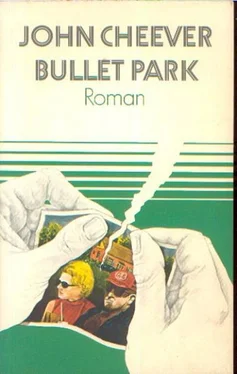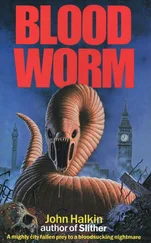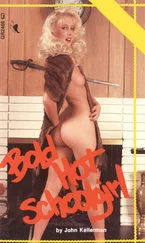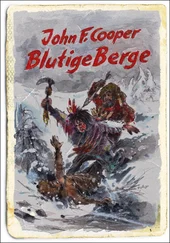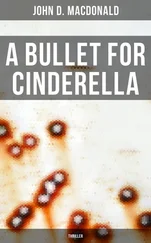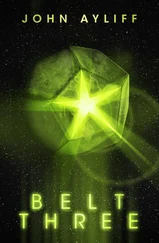John Cheever - Bullet Park
Здесь есть возможность читать онлайн «John Cheever - Bullet Park» весь текст электронной книги совершенно бесплатно (целиком полную версию без сокращений). В некоторых случаях можно слушать аудио, скачать через торрент в формате fb2 и присутствует краткое содержание. Жанр: Современная проза, на английском языке. Описание произведения, (предисловие) а так же отзывы посетителей доступны на портале библиотеки ЛибКат.
- Название:Bullet Park
- Автор:
- Жанр:
- Год:неизвестен
- ISBN:нет данных
- Рейтинг книги:3 / 5. Голосов: 1
-
Избранное:Добавить в избранное
- Отзывы:
-
Ваша оценка:
- 60
- 1
- 2
- 3
- 4
- 5
Bullet Park: краткое содержание, описание и аннотация
Предлагаем к чтению аннотацию, описание, краткое содержание или предисловие (зависит от того, что написал сам автор книги «Bullet Park»). Если вы не нашли необходимую информацию о книге — напишите в комментариях, мы постараемся отыскать её.
Bullet Park — читать онлайн бесплатно полную книгу (весь текст) целиком
Ниже представлен текст книги, разбитый по страницам. Система сохранения места последней прочитанной страницы, позволяет с удобством читать онлайн бесплатно книгу «Bullet Park», без необходимости каждый раз заново искать на чём Вы остановились. Поставьте закладку, и сможете в любой момент перейти на страницу, на которой закончили чтение.
Интервал:
Закладка:

John Cheever
Bullet Park
The Temple Of Light
"Are you the holy man?" Hammer asked.
"Oh no, no indeed. I've never claimed to be that. You must excuse me. I am very tired tonight."
"You cure the sick?"
"Sometimes, sometimes. I help with prayers but I am so tired tonight that I cannot help myself. I have said a hundred times that I am sitting in a house by the sea at four o'clock and that it is raining but I know that it is half past five and I am sitting in an old chair over a funeral parlor."
"You remember Tony Nailles?"
"Yes."
"I am going to kill him," Hammer said. "I am going to burn him on the altar of Christ's Church."
"Get out of here," the swami said. "Get out of the Temple of Light."
To
Robert and Susan Cowley
PART 1
I
Paint me a small railroad station then, ten minutes before dark. Beyond the platform are the waters of the Wekonsett River, reflecting a somber afterglow. The architecture of the station is oddly informal, gloomy but unserious, and mostly resembles a pergola, cottage or summer house although this is a climate of harsh winters. The lamps along the platform burn with a nearly palpable plaintiveness. The setting seems in some way to be at the heart of the matter. We travel by plane, oftener than not, and yet the spirit of our country seems to have remained a country of railroads. You wake in a pullman bedroom at three a.m. in a city the name of which you do not know and may never discover. A man stands on the platform with a child on his shoulders. They are waving goodbye to some traveler, but what is the child doing up so late and why is the man crying? On a siding beyond the platform there is a lighted dining car where a waiter sits alone at a table, adding up his accounts. Beyond this is a water tower and beyond this a well-lighted and empty street. Then you think happily that this is your country-unique, mysterious and vast. One has no such feelings in airplanes, airports and the trains of other nations.
A train arrives, a passenger departs and is met by a real-estate agent named Hazzard, for who else will know the exact age, usefulness, value and well-being of the houses in the town. "Welcome to Bullet Park. We hope you'll like it well enough to join us here." Mr. Hazzard does not happen to live in Bullet Park. His name, like that of every other licensed real-estate dealer, is nailed to the trees in vacant lots, but he transacts his business in a small office in the next village. The stranger has left his wife in the Hotel Plaza, watching television. The search for shelter seems to him to go on at a nearly primordial level. Prices are high these days and nothing is exactly what one wants. The scuffed paint and discarded portables of earlier owners seem as alive and demanding as the clothing and papers one sorts out after a death in the family. The house or the flat that he looks for, he knows, will have had to have appeared at least twice in his dreams. When it is all over, when the gardens are planted and the furniture is settled, the rigors of the journey will have been concealed; but on this evening the blood-memory of travel and migrations courses through his veins. The people of Bullet Park intend not so much to have arrived there as to have been planted and grown there, but this of course was untrue. Disorder, moving vans, bank loans at high interest, tears and desperation had characterized most of their arrivals and departures.
"This is our commercial center," says Hazzard. "We have all sorts of plans for its improvement. There's Powder Hill," says Hazzard, nodding towards a lighted hill on their right. "There's a property there I'd like to show you. The asking price is fifty-seven thousand. Five bedrooms, three baths…" The lights of Powder Hill twinkled, its chimneys smoked and a pink plush toilet-seat cover flew from a clothesline. Seen at an improbable distance by some zealous and vengeful adolescent, ranging over the golf links, the piece of plush would seem to be the imprimatur, the guerdon, the accolade and banner of Powder Hill behind which marched, in tight English shoes, the legions of wife-swapping, Jew-baiting, booze-fighting spiritual bankrupts. Oh damn them all, thought the adolescent. Damn the bright lights by which no one reads, damn the continuous music which no one hears, damn the grand pianos that no one can play, damn the white houses mortgaged up to their rain gutters, damn them for plundering the ocean for fish to feed the mink whose skins they wear and damn their shelves on which there rests a single book-a copy of the telephone directory, bound in pink brocade. Damn their hypocrisy, damn their cant, damn their credit cards, damn their discounting the wilderness of the human spirit, damn their immaculateness, damn their lechery and damn them above all for having leached from life that strength, malodorousness, color and zeal that give it meaning. Howl, howl, howl.
But the adolescent, as adolescents always are, would be mistaken. Take the Wickwires, for instance, whose white house (estimated resale price: $65,000) Hazzard and the traveler were passing. If the social customs of Powder Hill were to be attacked by the adolescent the Wickwires would make a splendid target. They were charming, they were brilliant, they were incandescent, and their engagement calendar was booked solid from Labor Day to the Fourth of July. They were quite literally social workers-celebrants-using their charm and their brilliance to make things go at a social level. They were people who understood that cocktails and dinner in their time and place were as important to the welfare of the community as the village caucus, the school board and the municipal services. For a community that had so few altars-four to be exact-and none of them sacrificial, they seemed, as serious and dedicated celebrants, to have improvised a sacrificial altar on which they had literally given up some flesh and blood. They were always falling downstairs, bumping into sharp-edged furniture and driving their cars into ditches. When they arrived at a party they would be impeccably dressed but her right arm would be in a sling. He would support a game leg with a gold-headed cane and wear dark glasses. She had sprained her arm in a fall. He had broken his leg in the winter and the dark glasses concealed a mouse that had the thrilling reds and purples of a late winter moon, cloud-buried and observed by some yearning and bewildered youth. Their brilliance was not diminished by their injuries. In fact they almost always appeared with some limb in a sling, some extremity bandaged, some show of court plaster.
Their brilliance, their ardor as celebrants, is serious. After any common weekend when they have lunched and dined out for three days running the seriousness of their role can best be estimated when the light of Monday morning shines on them as they sleep. When the alarm rings he mistakes it for the telephone. Their children are away at school and he concludes that one of them is sick or in trouble. When he understands that it is the alarm and not the telephone he puts his feet onto the floor. He groans. He swears. He stands. He feels himself to be a hollow man but one who has only recently been eviscerated and who can recall what it felt like to have a skinful of lively lights and vitals. She whimpers in pain and covers her face with a pillow. Feeling himself to be a painful cavity he goes down the hall to the bathroom. Looking at himself in the mirror he gives a loud cry of terror and revulsion. His eyes are red, his face is scored with lines, his light hair seems clumsily dyed. He possesses for a moment the curious power of being able to frighten himself. He soaks his face with water and shaves his beard. This exhausts his energies and he comes back down the hall to the bedroom, says that he will take a later train, returns to bed and pulls the blankets over his face to shut out the morning. She whimpers and cries. She then leaves the bed, her nightgown hooked up over her comely backside. She goes to the bathroom but she shuts her eyes as she passes the mirror. Back in bed she covers her face with a pillow and they both lie there, groaning loudly. He then joins her on her side of the bed and they engage in a back-breaking labor of love that occupies them for twenty minutes and leaves them both with a grueling headache. He has already missed the 8:11, the 8:22 and the 8:30. "Coffee" he mutters, and gets out of bed once more. He goes downstairs to the kitchen. Stepping into the kitchen he lets out another cry of pain when he sees the empties on the shelf by the sink.
Читать дальшеИнтервал:
Закладка:
Похожие книги на «Bullet Park»
Представляем Вашему вниманию похожие книги на «Bullet Park» списком для выбора. Мы отобрали схожую по названию и смыслу литературу в надежде предоставить читателям больше вариантов отыскать новые, интересные, ещё непрочитанные произведения.
Обсуждение, отзывы о книге «Bullet Park» и просто собственные мнения читателей. Оставьте ваши комментарии, напишите, что Вы думаете о произведении, его смысле или главных героях. Укажите что конкретно понравилось, а что нет, и почему Вы так считаете.
